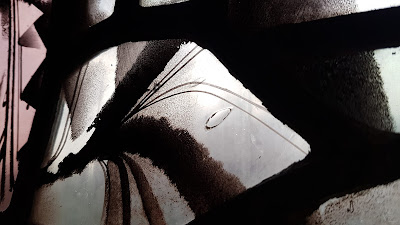In
which the exiles are called to cry out for mercy
Genesis
4:9-15
And
the LORD said to Cain, “Where is Abel your brother?” And he said, “I do not
know. Am I my brother’s keeper?” And He said, “What have you done? Listen! your
brother’s blood cries out to me from the soil. And so, cursed shall you be by
the soil that gaped with its mouth to take your brother’s blood from your hand.
If you till the soil, it will no longer give you its strength. A restless
wanderer shall you be on the earth.” And Cain said to the LORD, “My punishment
is too great to bear. Now that You have driven me this day from the soil and I
must hide from your presence, I shall be a restless wanderer on the earth and
whoever finds me will kill me.” And the LORD said to him, “Therefore whoever
kills Cain shall suffer sevenfold vengeance.” And the LORD set a mark upon Cain
so that whoever found him would not slay him.
Job 4:7,
8, 12-21
Recall,
pray: what innocent man has died, and where were the upright demolished? As I
have seen, those who plough mischief, those who plant wretchedness, reap it.
And
to me came a word in secret, and my ear caught a tag end of it, in musings from
nighttime’s visions when slumber falls upon men. Fear called to me, and
trembling, and all my limbs it gripped with fear. And a spirit passed over my
face, made the hair on my flesh stand on end. It halted, its look unfamiliar,
an image before my eyes, stillness, and a sound did I hear: Can a mortal be
cleared before God, can a man be made pure by his Maker? Why, His servants He
does not trust, His agents He charges with blame. All the more so, the
clay-house dwellers, whose foundation is in the dust, who are crushed more
quickly than moths. From morning to eve they are shattered, unawares they are
lost forever. Should their life thread be broken within them, they die, and
without any wisdom.
Chapter
4 introduces a recurring theme in Genesis, that of two brothers who struggle
to live peaceably together—Cain and Abel, Ishmael and Isaac, Esau and Jacob—the
younger being chosen by God. Here, Abel represents the line of kings, descended
from the shepherd David, cut off in violence; and, by association, the blameless
(or, purified, made blameless) community carried off into exile. Abel’s
offering is acceptable, but this does not preclude the possibility of Cain
bringing acceptable offerings. But how is a community to hold on the one hand,
a particular sense of calling while acknowledging, on the other, the struggles of
their ‘brother’ peoples? Jewish, Christian and Muslim communities wrestle with
the same question today, as do nations navigating sovereign place within an
international community.
Abel
cries out for justice, but also for mercy. In response to Abel’s cry, the LORD places
Cain under His protection. Abel is a community of exiles called to intercede on
behalf of their masters, pleading the Master, Lord have mercy. May our Advent
intercessions reflect this hope.
Biblical
texts: Robert Alter, The Hebrew Bible: A Translation with Commentary

















